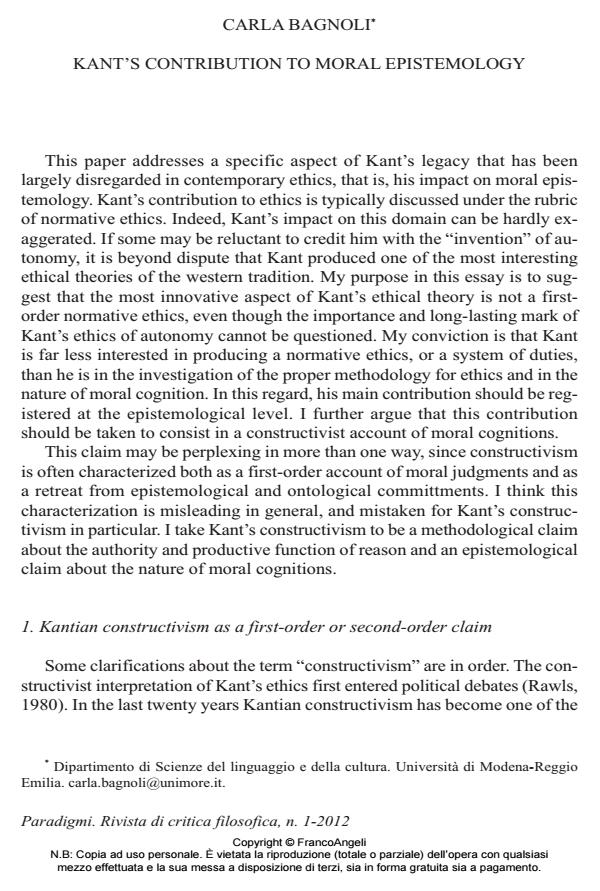Kant's Contribution to Moral Epistemology
Journal title PARADIGMI
Author/s Carla Bagnoli
Publishing Year 2012 Issue 2012/1
Language English Pages 9 P. 69-77 File size 83 KB
DOI 10.3280/PARA2012-001003
DOI is like a bar code for intellectual property: to have more infomation
click here
Below, you can see the article first page
If you want to buy this article in PDF format, you can do it, following the instructions to buy download credits

FrancoAngeli is member of Publishers International Linking Association, Inc (PILA), a not-for-profit association which run the CrossRef service enabling links to and from online scholarly content.
This paper argues that the most innovative aspect of Kant’s ethical theory is not afirst-order normative ethics, even though the importance and long-lasting mark ofKant’s ethics of autonomy cannot be questioned. Rather, it consists in a constructivistaccount of moral cognition. This claim may be perplexing in more than one way, sinceconstructivism is often characterized both as a first-order account of moral judgmentsand as a retreat from epistemological and ontological commitments. This characterizationis misleading in general, and mistaken for Kant’s constructivism in particular.Kant’s constructivism is a methodological claim about the authority and productivefunction of reason and an epistemological claim about the nature of moral cognitions.
Keywords: Constitutivism, Constructivism, Epistemology, Justification, Kant, Practicalreason.
Carla Bagnoli, Kant's Contribution to Moral Epistemology in "PARADIGMI" 1/2012, pp 69-77, DOI: 10.3280/PARA2012-001003